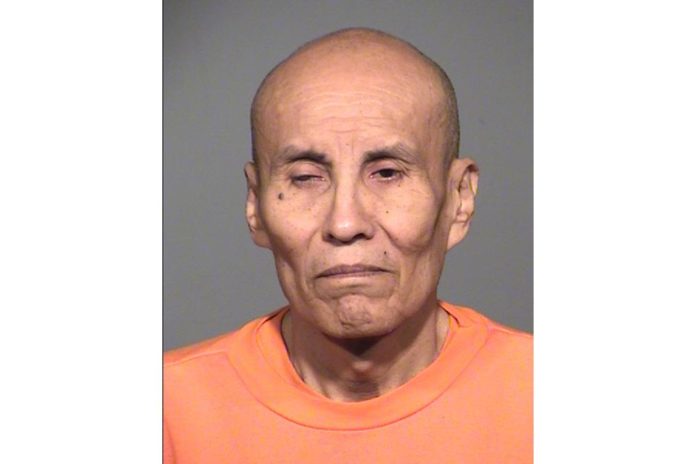
Attorneys for a prisoner scheduled to become the first person to be executed in Arizona in nearly eight years are making another bid to try to stop his execution, arguing their client’s psychological problems keep him from rationally understanding why the state wants to end his life.
In an order Friday, a Pinal County judge concluded defense lawyers had shown reasonable grounds for appointing mental health experts to examine Clarence Dixon and for planning a hearing over whether their client is competent to be executed for his murder conviction in the 1977 killing of Deana Bowdoin, a 21-year-old Arizona State University student. His execution is scheduled for May 11.
Dixon’s attorneys say putting Dixon to death would violate protections against executing people who are mentally incompetent. They cited a psychiatrist’s conclusion that their client lacks a rational understanding of the reasons for his execution.
They say Dixon has been diagnosed with paranoid schizophrenia on multiple occasions, has regularly experienced hallucinations over the past 30 years, and was found “not guilty by reason of insanity” in a 1977 assault case in which the verdict was delivered by then-Maricopa County Superior Court Judge Sandra Day O’Connor, nearly four years before her appointment to the U.S. Supreme Court. Bowdoin was killed two days after the verdict, according to court records.
Dixon’s lawyers say he erroneously believes he will be executed because police at Northern Arizona University wrongfully arrested him in a previous case — a 1985 attack on a 21-year-old student. His attorneys concede he was, in fact, lawfully arrested then by Flagstaff police.
Dixon was sentenced to life sentences in that case for sexual assault and other convictions. DNA samples taken while he was in prison later linked him to Bowdoin’s killing, which at that point had been unsolved.
His attorneys say Dixon’s inability to distinguish between reality and fantasy in the case involving an NAU student had started to spill into the case over Bowdoin’s killing.
Dixon had fired his attorney in the case involving Bowdoin’s death under an irrational belief that the DNA evidence wasn’t admissible in the murder case because he erroneously thinks the NAU Police Department wasn’t a legal entity when it arrested him on the sexual assault charges, his current lawyers said.
“For decades, convicted killers have used the court system to delay accepting responsibly for their heinous crimes,” said Katie Conner, a spokesperson for Arizona Attorney General Mark Brnovich’s office. “General Brnovich will continue to fight for victims, their families, and our communities.”
Prosecutors have said Bowdoin, who was found dead in her apartment, had been raped, stabbed, and strangled. Dixon had been charged with raping Bowdoin, but the charge was later dropped on statute-of-limitation grounds. He was convicted, though, in her death.
The last time Arizona used the death penalty was in July 2014, when Joseph Wood was given 15 doses of a two-drug combination over two hours in an execution that his lawyers said was botched.
States including Arizona have struggled to buy execution drugs in recent years after U.S. and European pharmaceutical companies began blocking the use of their products in lethal injections. Last year, Arizona corrections officials revealed that they had finally obtained a lethal injection drug and were ready to resume executions.
About a year ago, prosecutors took steps to seek the executions of Dixon and another death row prisoner, but the litigation was put on hold by the state Supreme Court due to concerns over the expiration date of the drug to be used in the lethal injections. Earlier this year, the state resumed its efforts to move forward with its executions.
Dixon must decide whether to be injected with a lethal drug or by the gas chamber. If he doesn’t make a choice, lethal injection will serve as the default execution method.
The nation’s last lethal-gas execution was carried out in Arizona more than two decades ago before the United States rejected the brutal nature of the deaths. The state refurbished its gas chamber in late 2020. Corrections officials have declined to say why they are restarting the gas chamber.
Late last week, a judge denied a request by the Jewish Community Relations Council of Greater Phoenix to bar the state from using cyanide gas to carry out executions in Arizona.
Arizona has 112 prisoners on death row.
Republished with the permission of the Associated Press.













